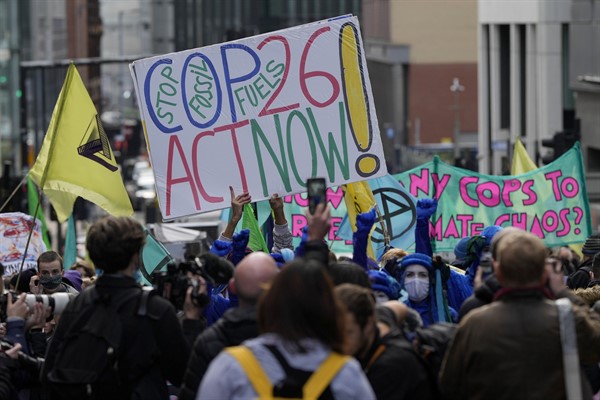World leaders are gathered in Glasgow, Scotland, for what many consider the most important climate change talks in global history. COP26, as this year’s United Nations Climate Change Conference is known, is the largest diplomatic gathering since the start of the COVID-19 pandemic.
The negotiations are meant to be based on scientific findings and policy proposals—not entirely apolitical, but less politically tinged than, say, discussions concerning transnational migration or human rights violations. That’s because, when it comes to climate change, countries are judged on the merits of their plans, not their political systems or their respect for civil liberties. While it is widely recognized that how a nation organizes itself has a direct bearing on its human rights record and its approach to freedom of the press, climate action and democracy generally aren’t seen as connected.
In fact, many commentators argue that democracy is actually detrimental to ambitious climate policy. According to this view, the United States is the most advanced democracy in the world, yet it has failed to durably participate in global climate agreements like the 1997 Kyoto Protocol and the 2015 Paris Agreement, both of which were initially championed by Democratic U.S. presidents before being abandoned by their Republican successors. Meanwhile, China’s one-party state has consistently invested in mass transit systems and led the way on renewable energy, illustrating a contrast between messy democratic systems—in which minority interests and climate deniers can derail progress—and efficient authoritarianism.

